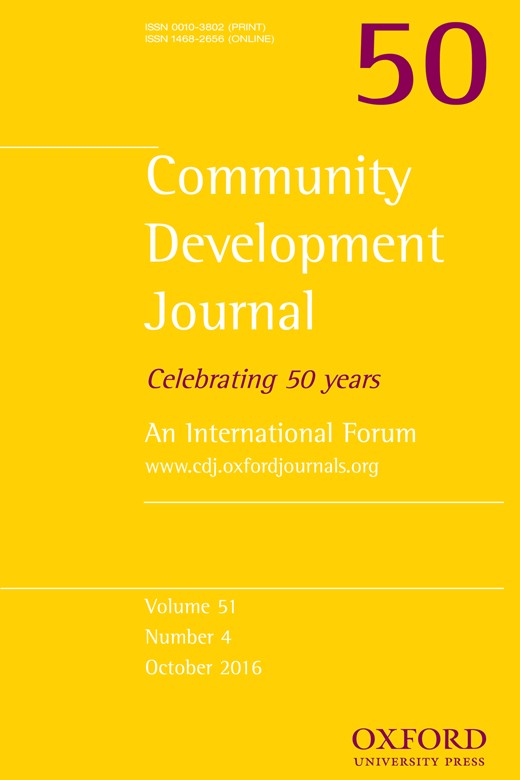-
Views
-
Cite
Cite
Haijing Dai, From personal ties to village welfare: changing community bonding in post-socialist rural China, Community Development Journal, Volume 51, Issue 4, 4 October 2016, Pages 517–533, https://doi.org/10.1093/cdj/bsv048
Close - Share Icon Share
Through a case study of Zhang Village in south Zhejiang Province of China, this article explores how the changing mechanisms of community bonding in contemporary Chinese villages embed multi-dimensional construction of the meaning of community. Organized and mobilized by personal ties, the village managed to safeguard the interest of the villagers during the land confiscation of the local government and the resettlement of the village. When generous village welfare programmes were established to reconnect villagers, the rural community, via welfare provision, cultivates conformity to the village authority and compliance with the local state's control and ruthlessly excludes the migrant population residing in the village, so as to defend the local common good. The evolving community bonding and administration in the village, while resulting from local processes of urbanization, is contextualized in the macro political structure in the Chinese countryside and the national household registration system. As an empirical research to understand the new politics of community, the study suggests a relational view of the ever changing community bonding mechanisms in the modern world and discusses its implications for grassroots political governance in contemporary China, community-based social services and the welfare reforms of decentralization.



